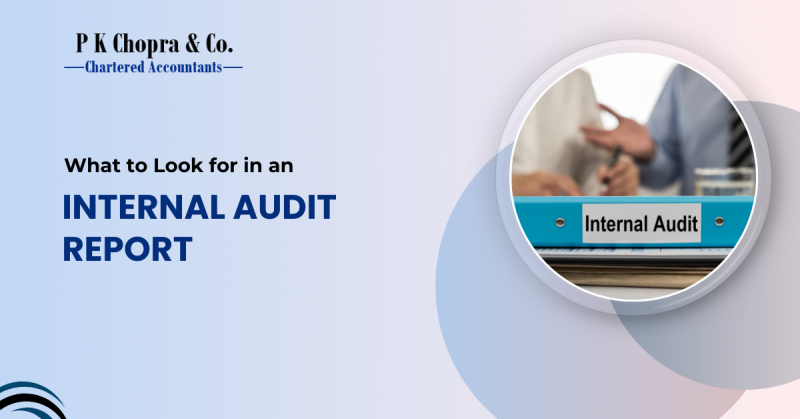What to Look for in an Internal Audit Report
Introduction
Internal audit reports play a pivotal role in ensuring the smooth functioning and integrity of an organization. They provide valuable insights into various aspects of operations, compliance, and risk management. In this blog, we will delve into the essential elements that one should look for in an internal audit report.
Understanding Internal Audit Reports
Internal audit reports are comprehensive documents that assess the effectiveness of internal controls, risk management processes, and compliance with regulations. These reports encompass a wide range of areas, including financial, operational, and regulatory compliance.
Accuracy and Completeness
The accuracy and completeness of data presented in the audit report are paramount. It is crucial to ensure that all findings are based on reliable information and that no critical aspects are overlooked.
Relevance to Organizational Goals
A good internal audit report should be closely aligned with the organization’s goals and objectives. It should address key areas of concern that have a direct impact on achieving strategic targets.
Clarity and Transparency
Clear and transparent communication is essential in an audit report. Complex findings should be presented in a way that is easily understandable to stakeholders, and there should be no ambiguity in the reporting.
Compliance and Risk Management
The audit report should highlight any non-compliance issues and risks faced by the organization. It should provide recommendations for mitigating these risks and ensuring compliance with relevant regulations.
Actionable Recommendations
One of the key purposes of an internal audit report is to provide actionable recommendations for improvement. These recommendations should be practical, realistic, and tailored to the specific needs of the organization.
Timeliness of Reporting
Timely reporting is crucial for effective decision-making. Internal audit reports should be delivered promptly to ensure that management can address any issues in a timely manner.
Quality of Analysis
The depth of analysis provided in the audit report is indicative of its quality. A well-analyzed report will offer valuable insights into the organization’s operations and performance.
Customization to Stakeholder Needs
Internal audit reports should be customized to meet the informational needs of different stakeholders. They should provide relevant information to management, the board of directors, and other relevant parties.
Professionalism and Objectivity
Internal auditors must maintain a high level of professionalism and objectivity when preparing audit reports. They should adhere to ethical standards and avoid any conflicts of interest.
Continuous Improvement
The internal audit process should be subject to continuous improvement. Feedback from stakeholders should be incorporated to enhance the quality and effectiveness of audit reports.
Technological Integration
Technological advancements can greatly enhance the efficiency and effectiveness of the internal audit process. Data analytics tools can be used to analyze large volumes of data and identify potential risks and opportunities.
Case Studies
Examining case studies of effective audit reports can provide valuable insights into best practices and lessons learned. Real-life examples help illustrate the importance of thorough and insightful reporting.
Conclusion
In conclusion, internal audit reports are invaluable tools for assessing and improving organizational performance. By paying attention to the key elements discussed in this blog, stakeholders can ensure that they receive high-quality, actionable insights from their internal audit function.
FAQs
- Why are internal audit reports important?
Internal audit reports provide valuable insights into an organization’s operations, compliance, and risk management, helping stakeholders make informed decisions. - What should I look for in an internal audit report?
Look for accuracy, relevance to organizational goals, clarity, actionable recommendations, and timeliness of reporting. - How can internal audit reports be improved?
Internal audit reports can be improved through continuous feedback, technological integration, and professional development of auditors. - Are internal audit reports confidential?
Internal audit reports are typically confidential documents intended for internal use only, although certain summaries or excerpts may be shared with external stakeholders as needed. - How often should internal audit reports be conducted?
The frequency of internal audit reports depends on the organization’s size, industry, and regulatory requirements. They are often conducted annually but may be more frequent for high-risk areas or in response to specific events.

